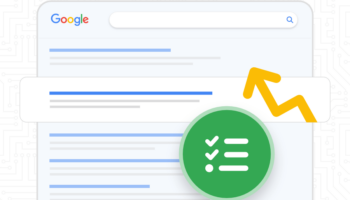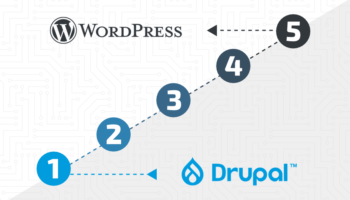When it comes to spending your business’s marketing budget, SEO is one of the most effective ways to boost your online visibility in both the short and long term. In this age of information overload, there are more than a few misconceptions and false facts about SEO and how to get your website to rank well online. Let’s dig in and address some of the common misconceptions.
Misconception #1 – The More Keywords the Better
One common misconception is that you need to hit a certain number of keywords or a specific word count to rank well. What matters most is the quality and how effectively you are communicating your message through adding these keywords to on-page content. Think about it this way, a Google Bot comes crawling and finds 15 keywords in a 500-word piece of well-executed content — does that give the crawler more information than if the content included 5 keywords? Also, another thing to consider, crawlers are (hopefully) not the only ones reading your content. So ask yourself, “Does my audience gain information and enjoy reading my content with fewer or more keywords?” We think you know the answer for your particular business.
Another common misconception is about keyword positioning and the idea that keywords added to the domain help to boost your search engine rankings. Google Search Advocate John Mueller has explained that “Just because a website has a keyword in its domain name doesn’t mean that it’s more relevant than others for that keyword. In short, you don’t need to put keywords in the domain name.”
While a keyword in the URL may fit perfectly for some businesses, for others it may sound downright silly. Instead of adding keywords to your domain, use that space to focus on your business branding and the message you want to communicate.
Misconception #2 – SEO Will Become Obsolete
As machine learning and algorithms continue to advance, there is always chatter about SEO becoming obsolete. The concern is that Google and other search engines will advance to a point where they no longer need SEO to guide them, but will automatically be able to understand every website and its content well enough to index it correctly.
The fact is SEO matters for your site today. Instead of worrying that your SEO efforts will be of no effect, continue to invest in your SEO strategy. Publish quality content, gain high-value backlinks, add meta descriptions, images, and videos. Why? Because your users both want and need it and for the time being, SEO is currently used to index and rank websites.
Misconception #3 – All Backlinks Are Created Equal
A backlink for your site is a hyperlink listed on someone’s webpage that connects to a page on your website. These links are often considered useful as they can increase traffic to your site by demonstrating online authority. However, there is a misconception that gaining a large amount of these links is a high priority for ranking. As the web continues to expand and evolve, it’s more important to focus on backlink quality and trustworthiness and not the number of backlinks you can gain.
The statement “quality over quantity” really rings true when it comes to backlinks. One high-quality backlink can do more for your website’s ranking than dozens of low-quality links. Currently, Google Search Central advises that site owners should be careful who they link to, noting this in their SEO starter guide: “You can confer some of your site’s reputation to another site when your site links to it. Sometimes users can take advantage of this by adding links to their own site in your comment sections or message boards. Or sometimes you might mention a site in a negative way and don’t want to confer any of your reputation upon it.”
Misconception #4 – Duplicate Content Is a Negative Ranking Factor
Duplicate content is often categorized as a negative ranking factor and the reasons behind this misconception are valid. Ignoring your user’s experience and attempting to intentionally cram duplicate content onto your site to boost SEO is a poor practice.
However, depending on the nature of your business, duplicate content may not be avoidable. If addressed properly, duplicate content will not impact your rankings. There are steps you can take to avoid having your content marked as duplicate. Here are a few.
- If your website needs to be restructured, be sure to manage the process with care and include 301 redirects to ensure your users (including crawlers) don’t meet dead-ends with your content.
- Use canonicalization to manage content duplication. A canonical tag helps search engines understand which version of a URL you want to appear in search engine results. These tags allow you to tell search engines which page is your preferred page to index.
Keep in mind, the sum of these measures aids in building quality SEO which translates into a positive user experience. Unfortunately, there are no shortcuts to an optimized website, but don’t be discouraged. There are plenty of small modifications you can make that will amount to a noticeable impact on your search engine rankings and improvement of user experience. If you are looking to invest in your SEO in 2022, it’s time to connect with the experts at Hall.





